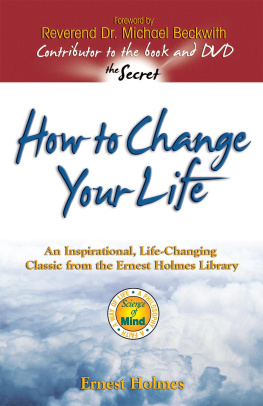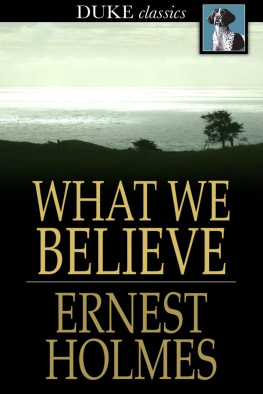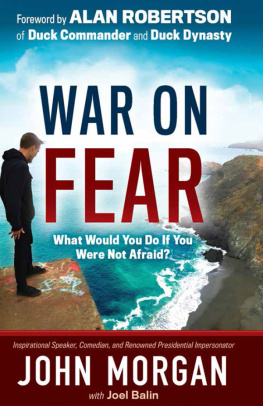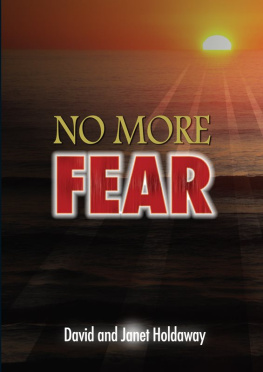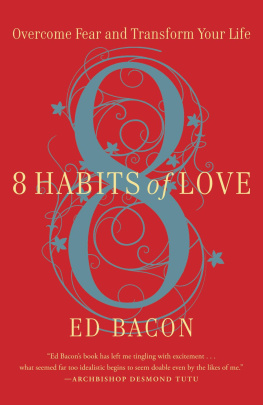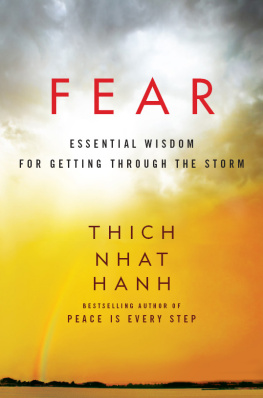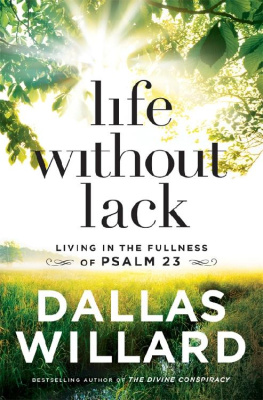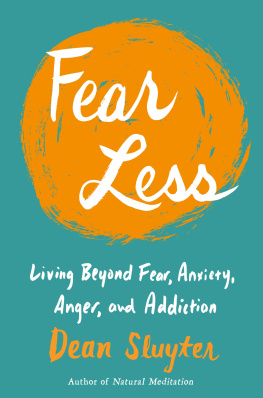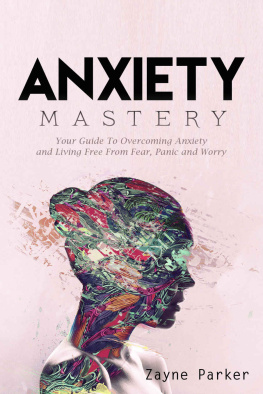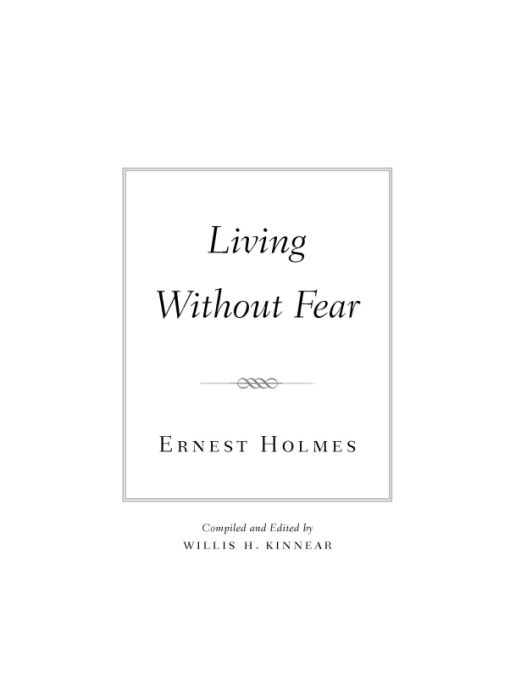Table of Contents
TARCHER/PENGUIN TITLES
BY ERNEST HOLMES
365 Science of Mind
A New Design for Living
The Art of Life
Creative Mind
Creative Mind and Success
Discover a Richer Life
The Essential Ernest Holmes
The Hidden Power of the Bible
Living Without Fear
Love and Law: The Unpublished Teachings
Prayer
The Science of Mind: The Definitive Edition
This Thing Called You
JEREMY P. TARCHER/PENGUIN
a member of Penguin Group (USA) Inc. New York
Foreword
This is the second in the series of Annual Editions of Science of Mind magazine to bring together the miscellaneous writings of Ernest Holmes.
The material in this Edition is taken from the earliest issues of Science of Mind magazine. Many of these articles were based on Dr. Holmess lectures during what was probably his most dynamic period as a teacher of modern metaphysics.
A great deal of the material in the early issues of the magazine was incorporated in the revised edition of the textbook, The Science of Mind. However, equally valuable material was of necessity omitted due to limitations of space. Some of it has been brought together to make this book. From one point of view this might be said to be a supplement to his textbook.
For over thirty years this material has been unavailable to the reading public, and it is hoped that now that it has been brought to light it will offer new hope, inspiration, and instruction to many new and old readers. Here we find Ernest Holmes presented to us in the same manner that first established him as one of the great religious philosophers and spiritual leaders of our day.
WILLIS KINNEAR
Introduction
We spend most of our lives trying to avoid what we do not like and seeking to experience more of those things that bring us pleasure, happiness, and well-being. However, in doing this we find ourselves in an almost continual state of fear in one or more of its many forms. We fear what we do not like, and also fear we will not have what we do like.
Worry, crisis, and anxiety seem to plague most people, often to the extent that life is something to be suffered through rather than to be lived with joy. This does not mean that we shall ever be free of all problems, but rather that life and living present a continual challenge, which we should learn to master instead of allowing it to master us.
No one imposes fear upon us, rather we create it for ourselves in our own thoughts and emotions. What we need to realize is that we have just as much freedom to eliminate fear as we have in creating it.
That there is an obvious need to secure our freedom from our self-created and self-imposed fears is found in those sciences which deal with the mind and the body. Any evidence of fear in our thought, whether it be large or small, can have subtle and far-reaching consequences. Unless properly handled the entire process of thought can become unbalanced and misdirected. Similarly, fear seems to be able to affect the function and structure of almost every part of the body.
Two questions immediately arise: To what extent can we afford to let ourselves become subject to the destructive thoughts of fear which we have established for ourselves? What can we do to free ourselves from them and replace them with other thoughts and ideas which will contribute to our welfare?
The escape from fear does not involve a retreat from living, but it does mean that our reactions to experiences should not be allowed to overwhelm us but should lead to constructive action. This implies that there should be a renewing of the mind so that its reactions to life are not negative, and that a watch should be maintained on our processes of thought so that they are maintained on a positive, constructive, creative level.
If a person seeks to free himself from limitations which his fears have imposed upon him, it will also be necessary for him to free himself from those ideas which have nourished and kept the fears alive to wreak their damage.
The purpose of the material in this book is to show you the pathway that may enable you to start your journey to a new freedom, a freedom from fear, and a greater participation in all those things which make life more worthwhile.
You can find a freedom from fear, and you can discover the ways and means to achieve more of what your heart desires. The journey can be made, the goals can be achieved. But it is something that no one else can do for you, for the attainment rests in the processes of your own thought.
The challenge in life and living is to what degree we can learn to think constructively. This book can show you the way, but the actual traveling of that way is up to you. And in your journey from fear to freedom you will be making the greatest discovery any man can makethe discovery of yourself!
W. K.
PART ONE
Freedom from Fear Is Possible
From time immemorial it has been almost instinctive for man, when confronted with fear, to turn to what he has considered a Power greater than himself; to seek release or protection from situations and conditions which have threatened what he considered a normal, natural existence.
This turning to a greater Power has been common to all men, at all times, and is an inherent aspect of all religious beliefs.
Primarily it is an act of thought, but it is also accompanied by action commensurate with the nature of the thought. This act of thought has been called many things, but is commonly identified as prayer. However, much that has passed as prayer has been ineffective in establishing the freedom sought.
What we seek to determine is the nature of man and the prayer which produces desired results.
Get Rid of Superstitions
Science is defined as knowledge of facts, laws, and proximate causes, gained and verified by exact observation and correct thinking.
Superstition is defined as a belief founded on irrational feelings and as a belief in a religious system regarded (by others than the believer) as unreasonable.
Supernatural is defined as that which is outside the range of the accepted course of nature; that which transcends nature and includes the Creator.
Nature is defined as the system of natural existences, forces, changes, and events, regarded as distinguished from, or exclusive of, the supernatural.
From the above stated definitions we gather that science is that which we know something about or have a definite knowledge of. Superstition is an unreasonable belief, especially in regard to religious convictions and our ideas of God. The supernatural is that which we do not understand or have any definite knowledge of, but might be that which includes the Creator, while nature means natural existence.
It appears from these definitions that the dictionary defines the supernatural from a superstitious standpoint, for it clearly states that the supernatural is outside the range of nature but includes the being of God. The definition is not scientific but superficial.
We are living in a scientific age, therefore in an age of a more or less exact knowledge of many things. But can we say that we have exact knowledge of ultimate causes other than that gathered from their effects?


